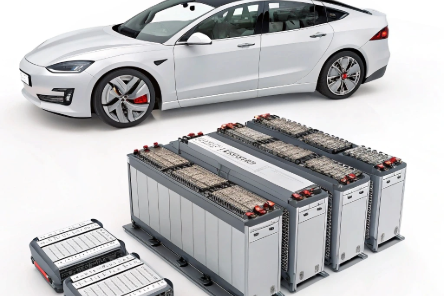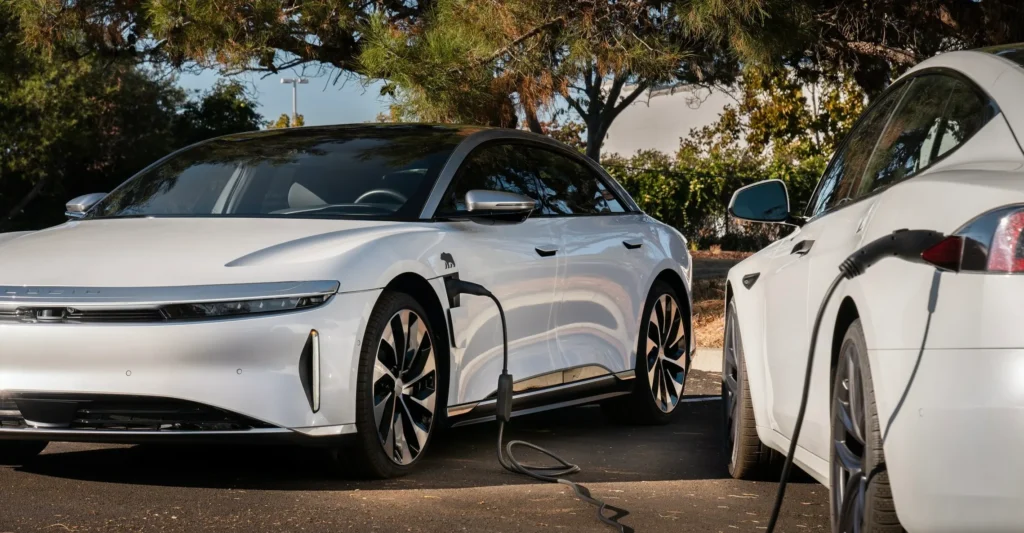The automotive industry is undergoing a significant transformation which is driven by the rapidly growing demand for electric vehicles (EVs). As technology advances and environmental concerns escalate, EVs are becoming increasingly mainstream, with many countries investing heavily in these new products, infrastructures are gradually been put in place with insensitive being offered for their adoption. In this article, we’ll explore the top trends shaping the EV industry, from advancements in battery technology to the rise of autonomous electric vehicles.
Advancing Battery Technology
Battery technology is the backbone of electric cars, and recent advancements have been significant. Solid-state batteries, lithium-air batteries, and sodium-ion batteries are just a few examples of the new technologies being developed. As a result, we can expect increased driving ranges, improved energy density, faster charging times, improved safety, and reduced costs.

Increased Adoption of Electric Vehicles
Governments worldwide are stepping up efforts to promote the use of electric vehicles (EVs) through various policies and initiatives. These measures include offering incentives, tax credits, and investing in the development of robust charging infrastructure. As these policies take root, EV sales are anticipated to surge significantly. According to Recurrent Auto’s latest data, revised sales projections consistently point towards achieving the ambitious 50% target.
Countries are increasingly setting goals to accelerate electric vehicle adoption. In Ghana, for instance, the energy minister has highlighted the government’s vision for the future, forecasting a major transformation of Ghanaian roads with an influx of electric cars within the next decade. This reflects a global trend where nations are embracing cleaner, greener transportation alternatives.
Charging infrastructure is another critical focus area in the EV adoption journey. Ghana is proactively addressing this need by planning to convert a significant number of traditional fuel stations into EV charging centers. This forward-thinking approach aligns with the broader global efforts to create accessible and efficient charging networks, further solidifying the path toward widespread electric vehicle usage.
These developments signal a collective commitment to reducing carbon emissions and advancing sustainable mobility solutions. As governments continue to implement these policies, the shift toward electric vehicles is poised to transform the future of transportation.
Rise of Electric Vehicle Start-ups
New electric vehicle start-ups are emerging, challenging traditional automakers. Companies like Rivian, Lucid Motors, and Fisker Inc. are pushing the boundaries of electric vehicle design, technology, and performance. These start-ups are set to disrupt the traditional automotive industry, bring new ideas and innovations to the market and increase competition and drive down prices.

Electrification of Public Transportation
Cities across the globe are transforming their public transportation systems by transitioning to electric vehicles. Buses, taxis, and ride-hailing services are leading this revolution, embracing a cleaner and more sustainable approach to mobility. This shift holds the promise of reducing emissions, improving air quality, and enhancing public health. Unlike traditional vehicles, electric vehicles produce zero tailpipe emissions, cutting down greenhouse gas emissions and pollutants that contribute to climate change and poor air quality. As a result, communities are set to benefit from a healthier environment and better overall public well-being.
The move towards electric public transportation also sparks an increase in the adoption of electric vehicles for personal use. With cities taking the lead, individuals are more likely to consider EVs as viable and appealing options for their daily commute. This growing demand sets the stage for new economic opportunities, paving the way for advancements in the manufacturing, maintenance, and operation of electric vehicles. Entire industries are evolving to support this transition, creating jobs and fostering innovation in technology and infrastructure.
As these transformations unfold, predictions for the future of electric vehicles highlight their pivotal role in reshaping the transportation landscape. BloombergNEF projects that over half of new car sales will be electric by 2023, a forecast supported by the International Energy Agency (IEA), which anticipates a nearly tenfold increase in global EV adoption by 2030. This momentum is bolstered by the expectation that electric vehicles will achieve price parity with internal combustion engine vehicles by 2025, making them more accessible to a wider range of consumers.




